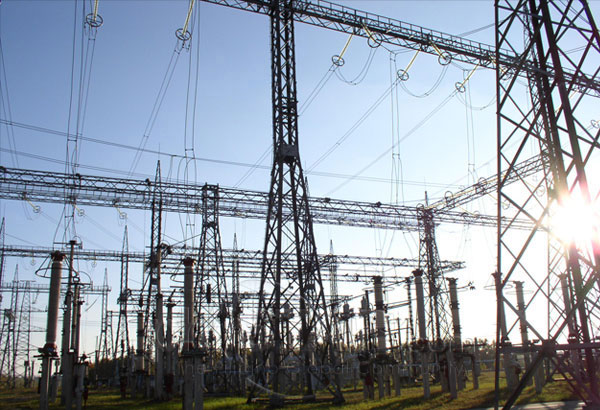SIM card registration

President Duterte’s disapproval of the SIM card registration bill shows he is not serious in making users of digital technology accountable.
Death threats, blackmail porn, scams, indecent or obscene messages, bank fraud, libel, anonymous online defamation, trolling, hate speech, spread of fake news, and other crimes are facilitated by the anonymity of cell phone and social media users.
Actually, I am not surprised. Trolls working for Duterte and his political allies would be easy to trace if this bill became law. Sayang. The work of the NBI and PNP cybercrime units would be so much easier too.
Why was the bill vetoed? The veto message claims: “While I find the SIM Card Registration aspect of the measure acceptable, the inclusion of social media accounts in this measure, without proper guidelines and definitions, will give rise to dangerous state intrusion and surveillance that will threaten many constitutionally- protected rights, and consequently expose the most substantive provisions of the bill to serious constitutional challenge.”
All of a sudden, it is as if Duterte is the champion of freedom of expression. The bill does not, as written, limit speech. It does not curtail one’s ability to post on social media. The bill only requires the use of one’s real name and registered SIM card in creating social media accounts.
Abuses in the use of social media arise because the use of pseudonyms is allowed. It takes time to have fake news and phishing to be removed, and in the meantime damage is done.
Mainstream journalism is often accused of biased reporting, but at least, the journalist and the newspaper or news organization can be made to account for any falsehood they publish. Since more and more people now take their news from social media, we must know who is responsible for the news that people are consuming.
As for possible violation of privacy rights, the bill contains numerous safeguards against privacy intrusions. The bill specifies that “any information obtained in the registration process described under this Act cannot be disclosed to any person.”
The disclosure may only be done in compliance with any law obligating the telco or social media provider to disclose such information in accordance with the provisions of Republic Act 10173 or the Data Privacy Act of 2012; in compliance with a court order, legal process, or with the written consent of the subscriber.
Section 10: That the request for disclosure is accompanied by an allegation that the specific mobile number or social media account was or is being used in the commission of a crime or that it was utilized as a means to commit a malicious, fraudulent, or unlawful act, including libel, anonymous online defamation, hate speech, trolling, or spread of digital disinformation or fake news.
The social media provision in the bill was introduced by Sen. Frank Drilon, and he denies it was a last-minute insertion.
“The records of the Senate would show that I proposed the amendment during Senate plenary deliberations. We studied thoroughly and were introduced in the Senate plenary as part of my humble contribution in the fight against trolls and fake news. Social media inclusion was approved by 22 senators, no negative vote. It got bipartisan support and vote. The House of Representatives adopted our version with little modification,” Drilon said when I asked him about it.
“My amendment offered a simple solution: All social media account providers shall require real-name and phone number upon creation of account (Section 4).”
Anonymous social media accounts are now being widely used in this election campaign. Unfortunately, the anonymity allows partisans to defame, to libel, spread fake news and publish photoshopped lewd photos about their political rivals or families.
And when they use a platform like TikTok, the damage is done immediately. Victims can complain to the NBI and the PNP, but resolution of cases take time if ever these are resolved at all.
Facebook, Twitter, and Instagram have been suspending accounts for misuse of their social media platforms. Most of these suspended accounts are traced to trolls working for political partisans. That’s probably why Duterte vetoed the bill. It is difficult to see any other reason that makes sense.
It would be great if Congress can override the veto as Senate President Tito Sotto proposed. Unfortunately, given the limited time left and the servile attitude of lawmakers to Duterte, that’s not going to happen. We have to wait for the next Congress to pass a similar bill and hopefully, the new president will not veto it again.
Regulating social media is now a worldwide concern. Early this week, the European Union took aim at the harm on society inflicted by social media with a landmark new law. The Digital Services Act would force Meta (Facebook/Instagram), Google and others to combat misinformation and restrict certain online ads.
The New York Times reports the new law would force Facebook, YouTube, and other internet services to combat misinformation.
The law, called the Digital Services Act, requires social media companies to more aggressively police their platforms for illicit content or risk billions of dollars in fines. The law ends an era of self-regulation in which tech companies set their own policies about what content could stay up or be taken down.
Europe is setting the standard for tech regulation globally. Frustrated by social media’s effect on elections and privacy-invading business models, EU officials now have broad new powers to crack down on tech giants that are worth trillions of dollars and that are used by billions of people for communication, entertainment, payments, and news.
Social media platforms have become too big and too powerful to entrust them with democracy’s continued survival. Until he was banned by Twitter, Trump was using the platform to damage American democratic institutions to keep him in power. That threat to democracy is why the Europeans are now starting to deal with abuses in social media.
And here we are… Duterte vetoed a bill that only wants social media users to be responsible for what they post.
Boo Chanco’s email address is [email protected]. Follow him on Twitter @boochanco.
- Latest
- Trending































